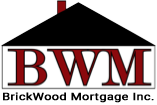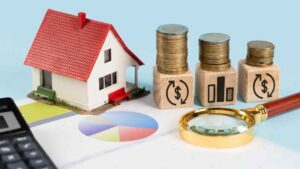Bank Statement Home Loans in South Carolina
A Guide for the Self-Employed Homebuyer
Myrtle Beach-Conway-North Myrtle Beach is the 3rd fastest growing metro area in the United States. With more than 60 mile stretch of beach land comprising Myrtle Beach, North Myrtle Beach, Pawleys Island, Charleston, and Mt. Pleasant. The Grand Strand area and surrounding cities in South Carolina are in high demand and booming with opportunity.
Are you self-employed and searching to purchase a home in South Carolina? The loan process can be tricky, no matter your employment status, but exceptionally so as a self-employed person. However, with the help of the BrickWood Mortgage, Inc. team you’ll be enjoying your new home in no time.
Did you know that self-employed people in South Carolina can apply for a bank statement home loan? A bank statement home loan allows those in non-traditional jobs, self-employed people and freelancers to procure a home loan with alternate documentation. If you’re a self-employed South Carolina homeowner or home owning hopeful, this guide is for you!
What is a bank statement home loan?
A bank statement home loan allows a person to get a mortgage if they are self-employed, own a business and need alternative documents to prove income. These loans are often referred to as “bank statements for home loan”. If you’re unable to provide documentation such as W-2’s or tax returns to secure a traditional loan, consider a bank statement home loans.
What do I need for a bank statement loan?
You are not required to show W-2’s, tax returns, or employer verifications for a bank statement home loan. You will, however, need a solid credit score. You will also need to show a few other documents to secure a bank statement loan.
- Proof of assets such as retirement accounts, investments, real estate, etc.
- Two years’ history of self-employment records
- 12 to 24 months of business or personal bank statements
- Documentation to verify the business is still active
- Proof of cash or liquid funds
That’s a very short list of documents and having those available when you call BrickWood Mortgage, Inc. will help our Loan Officer qualify you more accurately.
What are some of the downsides to the bank statement loan?
The bank statement loan is a great option for a number of reasons, but there are some facts to consider when deciding on a bank statement loan.
Bank statement loans can be a risk for lenders. Due to this risk some lenders will require a larger down payment compared to Fannie Mae, Freddie Mac, or Government loans. Where you might be able to get away with a 3% down payment on a traditional FHA, a bank statement loan may require 10-25% down. A bank statement loan’s interest rates are typically higher than a traditional loan as well.
Whether you currently own a home or looking to purchase a first home a bank statement home loan may be the perfect solution for you. Consider working with a professional mortgage broker with a 5 star rating like BrickWood Mortgage, Inc. to aid you in your home loan search. With access to many lenders and tips to point you to the loan program that works for you, the BrickWood Mortgage, Inc. team is here and ready to help. South Carolina is our home too and we are very proud to live here.
Useful Mortgage Tools Links
Bank Statement Mortgage Loans FAQs
Yes, you can get a mortgage with bank statements. Bank statement loans are special types of mortgages that allow borrowers to use their business or personal bank statements as proof of income rather than traditional employment and income verification. These loans are available for self-employed individuals who may not be able to prove their income through traditional methods such as W2s and tax returns.
Bank statement mortgages work by allowing borrowers to submit bank statements to show income rather than using traditional methods like tax returns. Mortgage lenders will review the statements to determine the amount of money you’ve earned over a given period and use that information to calculate your reliability as a borrower. If you qualify, you could be approved for a loan.
In some cases, most commonly with a down payment of over 20%, a bank statement loan will not require you to pay Private Mortgage Insurance (PMI), which is an additional cost that many borrowers must pay each month. However, you should always check with your lender to make sure that PMI won’t be required – BrickWood Mortgage will explain all the pertinent terms and conditions before you sign any documents.
When you apply for a bank statement loan, lenders will review your bank statements to calculate your income. Lenders will look at the deposits to your bank accounts over a period of time and use that amount as proof of income; they may also subtract estimated expenses related to running your self-employed business to get a better understanding of your income. The amount you are approved for will depend on your debt-to-income ratio and the lender’s guidelines.
Your bank statements alone won’t stop you from getting a mortgage; however, it’s important to keep in mind that lenders will look at your bank statements to calculate your income. If you have had low deposits, this could affect your ability to qualify for a mortgage (just as with any other loan). Work with BrickWood Mortgage to improve your chances of obtaining a bank statement mortgage loan and avoid common mistakes.
Latest Blog
Stay Informed with Our Latest Posts and Articles
How to Refinance Your Jumbo Mortgage in South Carolina
If you’re a South Carolina homeowner with a high-value property,...
Read MoreHow Much Down Payment is Required for FHA Loans in South Carolina?
When it comes to buying a home in South Carolina,...
Read MoreHow to Use a VA Loan to Buy a Home in South Carolina
For military service members, veterans, and their families in South...
Read MoreCan You Get an FHA Loan on a Mobile Home?
For many South Carolina residents, mobile homes represent an affordable...
Read More



